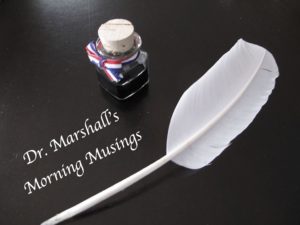Marijuana
Saw an interesting column today titled, “My Son Is Smoking Marijuana, and I’m a Mess.” In the column, Dr. Barbara Greenberg responds to a despondent parent who’s son is using marijuana. I was intrigued to learn what the author advised, as concerns over marijuana use among teenagers are only going to increase as more cities and states decriminalize and/or legalize it. I was especially interested in what advice she had regarding whether the parent should be worried and what to do now that she knows her son is using.
She scores on both counts. Whether to worry depends on why your son or daughter is using not just marijuana or any other substance. In previous blogs and podcasts we have discussed four levels of drug use. Level one is experimentation. Most teens are going to try the big three (alcohol, tobacco, and marijuana) and most will decide it is not for them. So if you find your teen is experimenting, keep an eye on things, but don’t overreact. Overreacting here could make it a power struggle, and you don’t want that. Let them know that you know and let them talk about it. Also be clear about your rules, such as no driving if you’re using.
A second level of use is what might be called social using. That’s how most of us use alcohol. We don’t drink every day, but we might drink if we are relaxing with friends. Again, this is of little concern to most parents. Kids may indulge if they are out with friends who smoke, but they don’t buy it for their own use and they smoke only on an occasional basis. Again, this is not serious usage and it should be minimized (not ignored, minimized). I would offer the same advice here; don’t make too big a deal about it. This is normal teenage behavior. Illegal? Yes. Dangerous? Possibly. Addictive? Not yet. I would treat this like experimenting. Eyes open, but don’t overreact.
However, if your teen is using marijuana to relieve stress, to help with sleep, to calm down; if your teen is using every day; if your teen is buying for personal use, then it is time to step in—and step in decisively. Teens who use any substance to cope with life are self-medicating, a clear sign that they are hurtling toward dependence and addiction. In this case, it is time to step in and stop the train. Work with your teen to find out what problem the drug is meant to fix and help your child find other solutions. If you just prohibit drug use and you don’t solve the underlying problem, you are just going to make things worse, because you’re telling your child, “I don’t care about your problems, I am the boss and I don’t permit you to use drugs.”
Once a child is dependent, addicted, selling, or using large amounts every day, it may be time to seek professional help. Even if it is “only marijuana,” some teens reach a point where smoking and being high takes over and everything else becomes nonessential.
The second piece of sage advice Dr. Greenberg offers is that parents not take away cell phones or other privileges. Your teen isn’t smoking because he or she has a cell phone or other privileges. Find out why your teen is smoking and then help him or her to solve their problem. For some it may be school pressure—reduce the pressure; for others it may be too much free time—fill up their schedule; others might be overscheduled—reduce their obligations.
If and when you discover that your child is using drugs or alcohol, stay calm. If you just come crashing in on them with an absolute prohibition, they are not going to confide in you. We want our teenagers to work with you to find other solutions for the challenges they face. If you start with prohibitions and punishments, you are probably shutting at least some of the doors to cooperation.

About the author